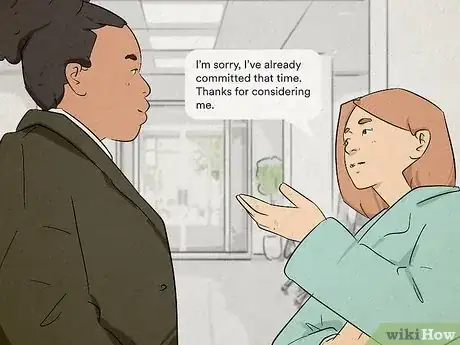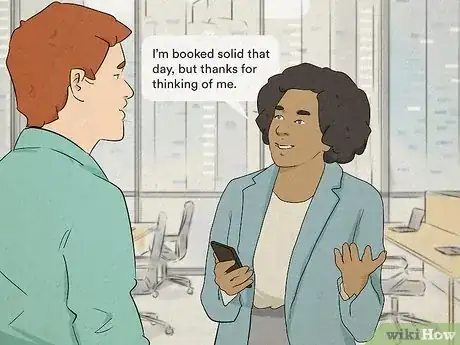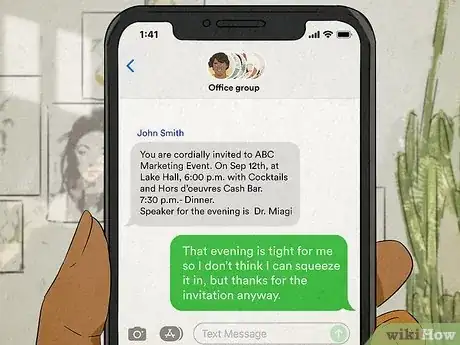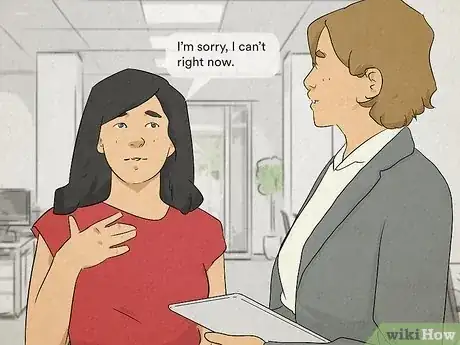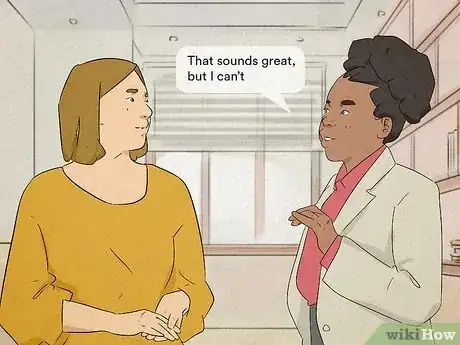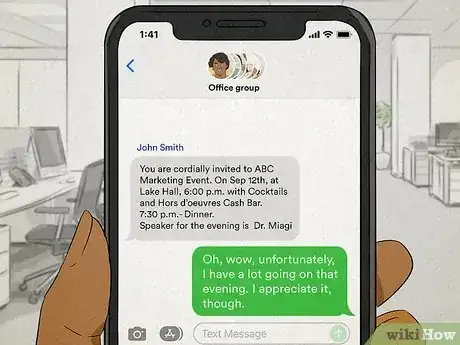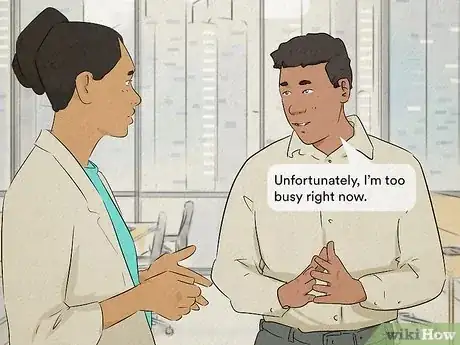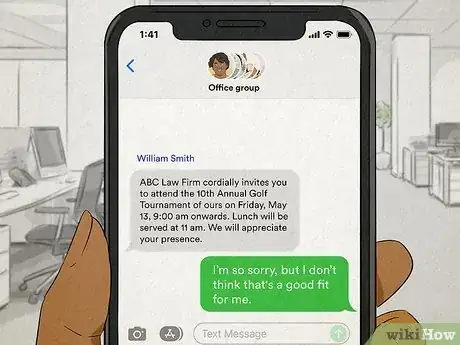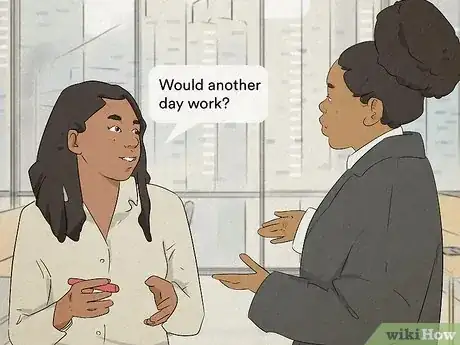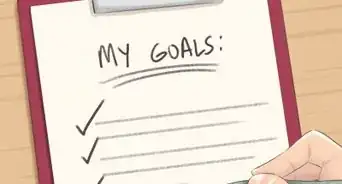This article was co-authored by Leah Morris and by wikiHow staff writer, Jennifer Mueller, JD. Leah Morris is a Life and Relationship Transition coach and the owner of Life Remade, a holistic personal coaching service. With over three years as a professional coach, she specializes in guiding people as they move through both short-term and long-term life transitions. Leah holds a BA in Organizational Communication from California State University, Chico and is a certified Transformational Life Coach through the Southwest Institute for Healing Arts.
There are 7 references cited in this article, which can be found at the bottom of the page.
This article has been viewed 23,047 times.
A coworker or supervisor has asked you to attend an event or take on a new project—but you have other plans. How can you tell them no without seeming ungrateful or unprofessional? Well, you've come to the right place. Here, you'll find plenty of options you can use to decline an invitation in a polite and professional way. Always remember to follow up your statement by thanking the person for thinking of you.[1]
Steps
Expert Q&A
-
QuestionHow can I stop feeling pressured to people please?
 Leah MorrisLeah Morris is a Life and Relationship Transition coach and the owner of Life Remade, a holistic personal coaching service. With over three years as a professional coach, she specializes in guiding people as they move through both short-term and long-term life transitions. Leah holds a BA in Organizational Communication from California State University, Chico and is a certified Transformational Life Coach through the Southwest Institute for Healing Arts.
Leah MorrisLeah Morris is a Life and Relationship Transition coach and the owner of Life Remade, a holistic personal coaching service. With over three years as a professional coach, she specializes in guiding people as they move through both short-term and long-term life transitions. Leah holds a BA in Organizational Communication from California State University, Chico and is a certified Transformational Life Coach through the Southwest Institute for Healing Arts.
Life Coach It's okay to speak up for your needs and say "no" if that's what's right for you. People pleasing isn't sustainable in the long-term. To overcome it, start by recognizing that it isn't your responsibility to make everyone happy. Your needs are just as important as everyone else's so tell people what you need from them. It might not seem like it, but you'll still be able to connect with people even if you disappoint them sometimes.
It's okay to speak up for your needs and say "no" if that's what's right for you. People pleasing isn't sustainable in the long-term. To overcome it, start by recognizing that it isn't your responsibility to make everyone happy. Your needs are just as important as everyone else's so tell people what you need from them. It might not seem like it, but you'll still be able to connect with people even if you disappoint them sometimes.
Warnings
- Don't lie about your plans. If you're discovered, it could harm your professional reputation. It's okay to say you have plans as a way to say no politely, but if you don't actually have plans, don't go into detail.[13]⧼thumbs_response⧽
References
- ↑ https://emilypost.com/advice/how-to-say-no-graciously
- ↑ https://www.fastcompany.com/3052200/as-the-bosss-wife-do-i-really-have-to-attend-his-work-events
- ↑ https://greatergood.berkeley.edu/article/item/21_ways_to_give_good_no
- ↑ https://greatergood.berkeley.edu/article/item/21_ways_to_give_good_no
- ↑ https://www.inc.com/jonathan-alpert/7-ways-to-say-no-to-someone-and-not-feel-bad-about-it.html
- ↑ https://www.science.org/content/article/learn-when-and-how-say-no-your-professional-life
- ↑ https://www.science.org/content/article/learn-when-and-how-say-no-your-professional-life
- ↑ https://hbr.org/2015/12/how-to-say-no-to-taking-on-more-work
- ↑ https://hbr.org/2016/05/polite-ways-to-decline-a-meeting-invitation
